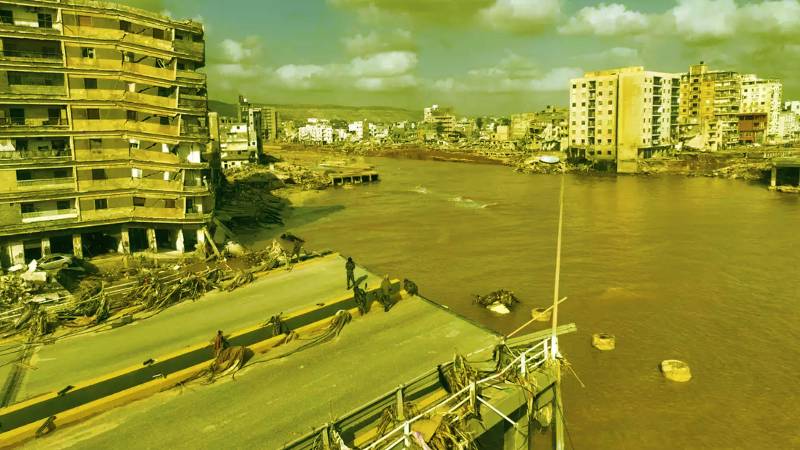
Storm Daniel unleashed severe rain on northeastern Libya, apparently breaching two significant dams and overflooding the already badly waterlogged regions of the country, leaving at least 2,300 dead and 10,000 missing.
The International Federation of Red Cross and Red Crescent Societies (IFRC) mission chief in Libya, Tamer Ramadan, said that "the death toll is huge and there are about 10,000 people reported missing."
As many as 6,000 people may be missing in the city of Derna alone, according to Othman Abduljalil, the health minister for the eastern parliament-backed government of Libya. He called some areas of the city a "ghost town."
Several cities in the northeast of the nation, close to the Mediterranean Sea, have been completely overrun by the floods, notably Derna, which has been particularly heavily struck.
The eastern region's emergency committee member and minister of civil aviation, Hichem Abu Chkiouat, provided a bleak picture when he said, "The situation was disastrous... Many of the dead are still lying on the ground. There are casualties under the debris and people who are still trapped in their houses.
A strong low-pressure system that caused devastating flooding in Greece later intensified into a tropical cyclone known as a "medicane," which is thought to be the cause of the floods. This hurricane-like catastrophic weather phenomenon has caused devastation in Libya, a country already dealing with political divides and the fallout from a protracted conflict.
Because of the disaster's scope, there are worries that Libya's political divisions will hinder relief operations. Since 2014, the nation has been split between competing governments; the Government of National Unity (GNU), which is supported by the UN and is located in Tripoli, is at odds with the government headed by General Khalifa Haftar in the east.
Numerous cities have been hit by the floods, which have caused entire neighborhoods and bridges to be destroyed. Heavy devastation, a lack of phone connections, and poor disaster planning have hindered rescue and relief efforts.
In charge of emergency and ambulance services in Libya, Osama Aly acknowledged that "Libya was not prepared for a calamity like that. That degree of disaster was unprecedented.

